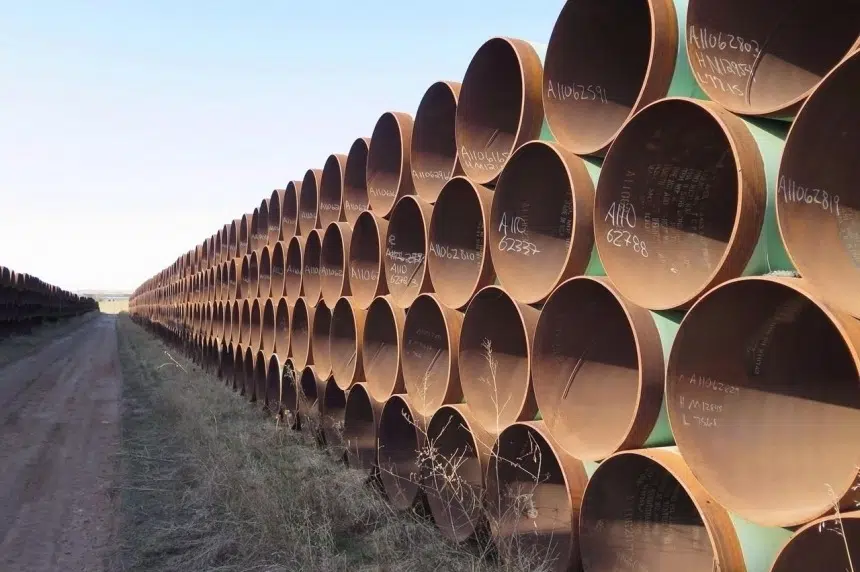Saskatchewan climate justice advocates are speaking out on the federal government’s decision to spend $4.5 billion to buy the Kinder Morgan Trans Mountain pipeline.
The move gives Canada ownership of the existing oil pipeline infrastructure. The price tag doesn’t include construction costs for an expansion project, currently under contention.
“It’s a waste of money. But even besides that, we have always opposed this expansion of pipeline projects,” said Mark Bigland-Pritchard with Climate Justice Saskatoon.
Bigland-Pritchard explained the group is focused on trying to move policy and public understanding about the limits of climate change, and the opportunities it brings — namely a chance to invest and create jobs in clean energy.
“There are things I would far prefer my money to be going towards, whether that’s a shift towards renewables, and towards electric vehicles — there’s a lot of infrastructure that we need.”
The advocacy group, with around 20 core members, lists a number of reasons it opposes the project including a lack of federal consultation with First Nations, a lack of research on bitumen spills into B.C. waterways and its overall commercial viability.
“I think it’s likely it’s going to fail. In a sense, that’s good news for the climate, but it’s really bad news in terms of where our tax money is going,” said Bigland-Pritchard said, adding the Trudeau government has left the country in a precarious position.
“Either we wreck the climate, and we mess up reconciliation and we risk water contamination, or else we lose a whole lot of taxpayers’ money.”
Canadian oil investor calls move ‘necessary evil’
Calgary-based oil investor Brett Wilson spoke about the Trans Mountain decision Wednesday on Gormley.
“People keep calling it a bailout, but I could flip it around and call it a necessary evil investment,” he said, adding it’s something Canada “shouldn’t have had to do.”
“We should have let free market do its thing.”
However, Wilson noted the overall economics of the decision are compelling.
“The western Canadian sedimentary basin is losing $15 billion relative to market value a year,” he said.
While Wilson admitted he doesn’t know how accurate the cost estimates for the project are, he believes Canada ultimately will make money off it.
“There is a pretty big prize at the end of the day to be shared by a number of people — taxes, jobs, capitol investment across western Canada goes up.”
He added the move is not carte blanche to build a pipeline, and there’s still a long way to go.
“The biggest mistake was the federal government didn’t go to the supreme court to get a stamp of approval on jurisdiction.”
Right now, the British Columbian government is fighting a battle over jurisdiction in court.
“All we’re doing is paying lawyers right now, we’re not actually investing in Canada and it’s the stupidest use of capital,” Wilson said.
“We’re creating nimbyism, we’re creating ‘Not My Backyard,’ and as a result we are creating animosity — and that’s not in our nation’s best interest.”
— With files from 650 CKOM’s Daniella Ponticelli.







